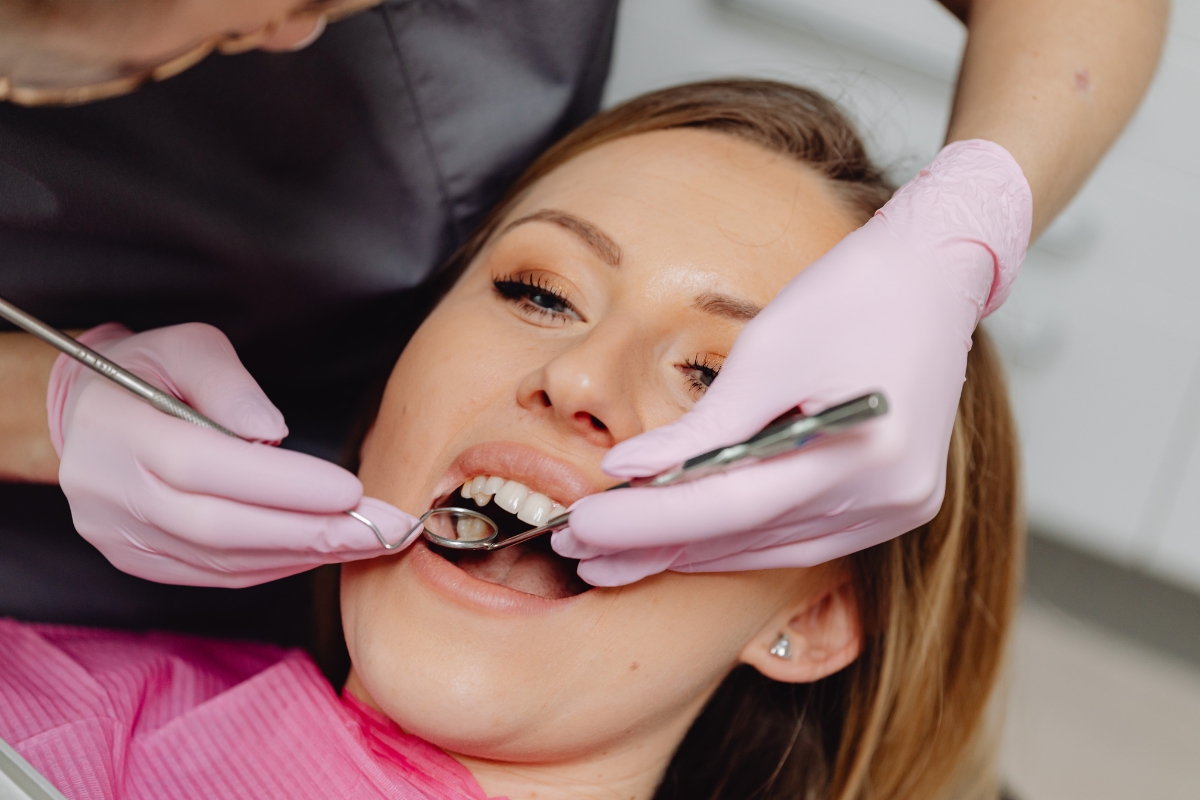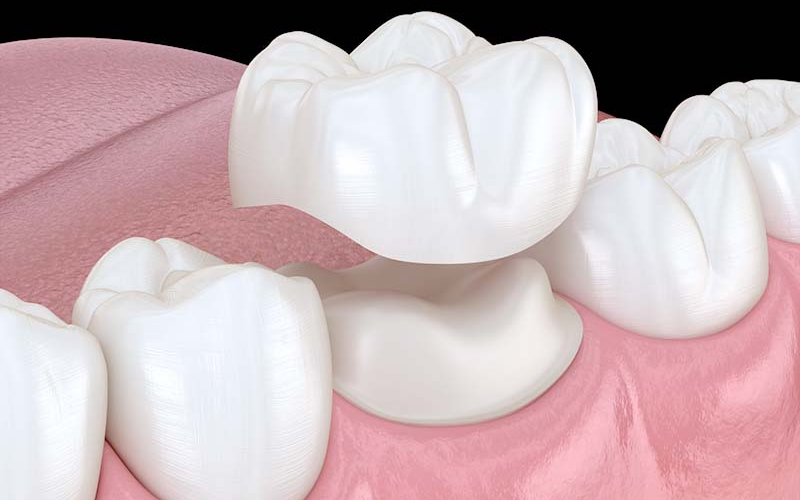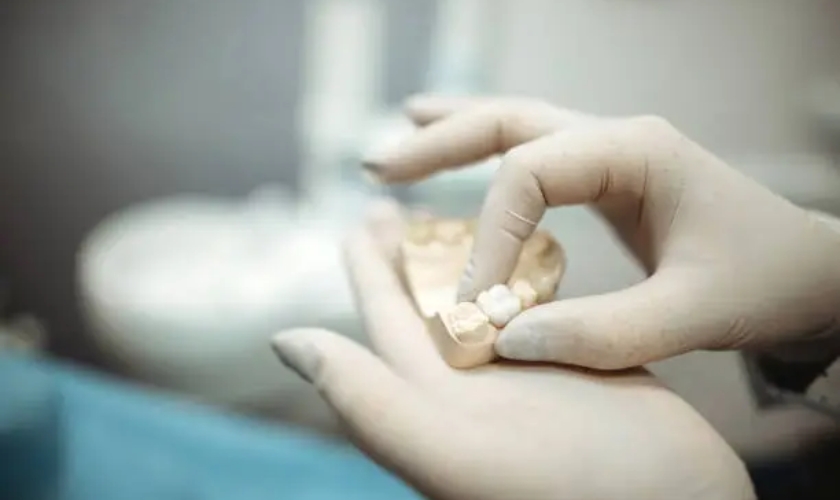6287 Taylorsville Rd Building #2, Fisherville, KY 40023
What To Do When Your Dental Crowns Break: A Comprehensive Guide

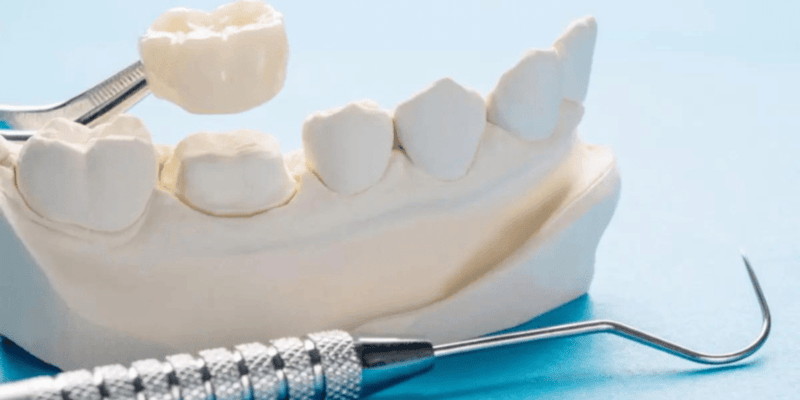
What To Do When Your Dental Crowns Break: A Comprehensive Guide
Dental crowns are a common and effective treatment for restoring damaged or decayed teeth. They provide strength, stability, and a natural appearance to teeth that have been compromised. However, like any dental restoration, dental crowns can break or become damaged due to various reasons, such as trauma, biting on hard objects, or natural wear and tear over time.
If you find yourself in a situation where your dental crown has broken, it’s important to take the right steps promptly to minimize discomfort and prevent further complications. In this comprehensive guide, we will walk you through everything you need to know about dealing with broken dental crowns.
Understanding Dental Crowns
Before diving into what to do when a dental crown breaks, let’s briefly understand what dental crowns are and why they are used:
Definition: A dental crown is a tooth-shaped cap that is placed over a tooth to restore its shape, size, strength, and appearance.
Materials: Crowns can be made from various materials, including porcelain, ceramic, metal (such as gold or alloy), or a combination of materials.
Purpose: They are used to protect a weak tooth, restore a broken tooth, cover a large filling, hold a dental bridge in place, or cover a dental implant.
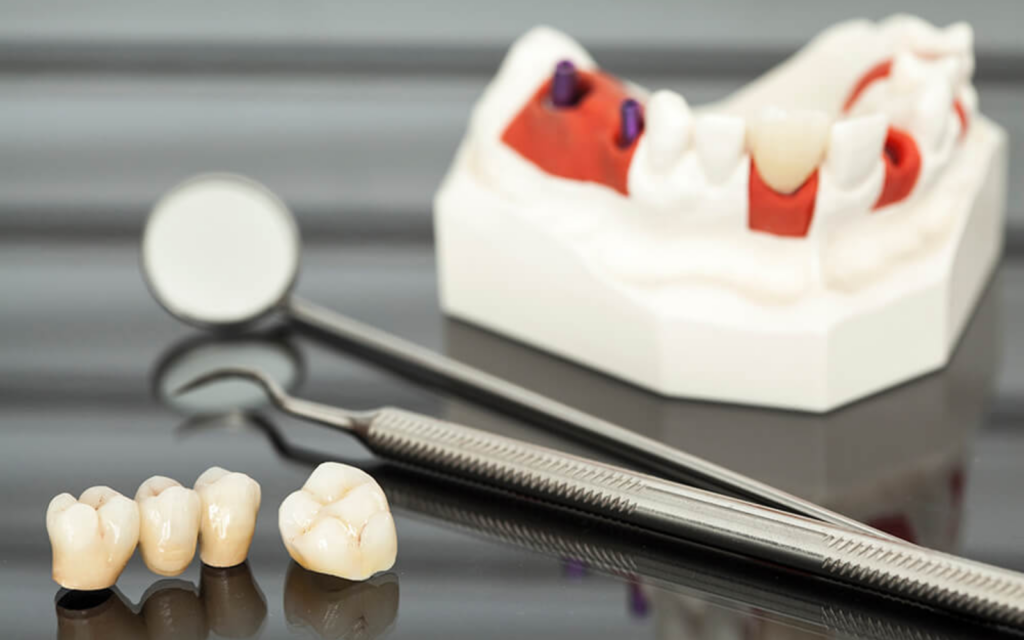
Signs of a Broken Dental Crown
The signs of a broken dental crown can vary depending on the severity of the damage. Some common signs include:
- Visible cracks or fractures: You may notice a crack or fracture on the surface of the crown.
- Discomfort or sensitivity: Pain or sensitivity when chewing or consuming hot or cold foods and drinks.
- Looseness: The crown may feel loose or unstable.
- Sharp edges: If part of the crown has broken off, it can leave sharp edges that may irritate the tongue or gums.
If you experience any of these signs, it’s essential to act promptly to prevent further damage and potential complications.
Immediate Steps When Your Dental Crown Breaks
1. Retrieve the Crown Piece (if possible):
If a piece of the crown has broken off, try to retrieve it if it’s safe to do so. This can help your dentist assess the damage and potentially reattach the piece.
2. Protect the Tooth:
If the crown has completely come off, it’s important to protect the underlying tooth. You can do this by placing dental cement, denture adhesive, or even temporary dental filling material over the tooth. This will help protect it until you can see your dentist.
3. Manage Discomfort:
Over-the-counter pain relievers such as ibuprofen can help manage any discomfort or sensitivity you may experience. Avoid chewing on the affected side of your mouth until you can get professional care.
4. Avoid DIY Fixes:
While it may be tempting to try and fix the crown yourself using household adhesives, it’s crucial to avoid this. These materials are not designed for dental use and can cause more harm than good.
What Your Dentist Will Do
When you visit your dentist, they will assess the damage to the crown and the underlying tooth. Depending on the extent of the damage, they may recommend one of the following treatments:
1. Recommendation:
If the crown is intact and the underlying tooth is undamaged, your dentist may be able to receive the crown in place.
2. Replacement:
If the crown is extensively damaged or if there are issues with the underlying tooth, your dentist may recommend replacing the crown altogether. They will take impressions of your teeth to create a new crown that matches your natural teeth.
3. Treatment of the Underlying Tooth:
If there is damage to the underlying tooth, your dentist may need to perform additional treatments, such as a root canal or buildup, before placing a new crown.
Long-Term Care for Dental Crowns
Once your dental crown has been repaired or replaced, it’s essential to take good care of it to ensure its longevity:
- Practice good oral hygiene: Brush and floss your teeth regularly, paying extra attention to the area around the crown.
- Avoid chewing hard foods: Be cautious with foods that can potentially damage your crown, such as hard candies or ice.
- Visit your dentist regularly: Routine dental check-ups allow your dentist to monitor the condition of your crown and address any issues early on.
Preventing Future Issues
While some instances of crown breakage are unavoidable, there are steps you can take to minimize the risk:
- Wear a mouthguard: If you grind your teeth at night or participate in contact sports, wearing a mouthguard can help protect your crowns.
- Avoid biting on hard objects: Using your teeth to open packages or bite on hard objects can put unnecessary stress on your crowns.
- Choose a reputable dentist: Ensure that your dental crowns are placed by a qualified and experienced dentist using high-quality materials.
Experiencing a broken dental crown can be stressful, but knowing how to respond can make all the difference in protecting your oral health. By following the steps outlined in this guide and seeking prompt dental care, you can minimize discomfort, prevent further damage, and ensure the longevity of your dental crowns.
Remember, if you ever encounter a broken dental crown, don’t hesitate to contact your dentist for professional advice and treatment. Your smile deserves the best care possible!



